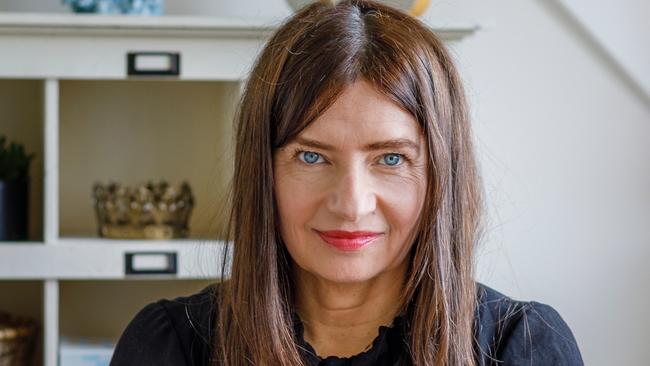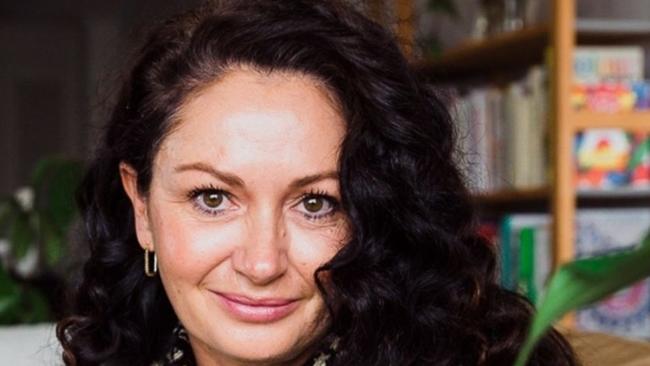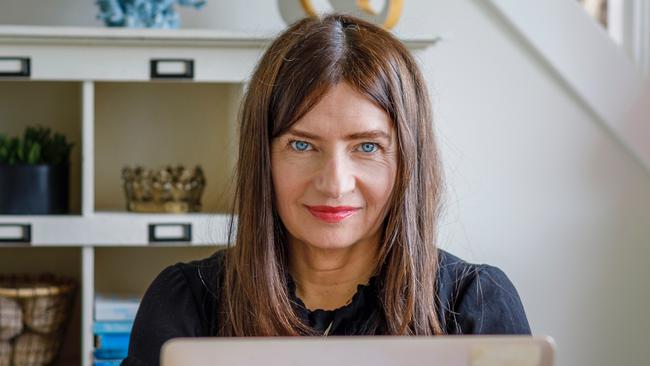Inside the rise of DIY divorce in the cost of living crisis
When Janine Lord split from her husband, she wanted it to cost as little as possible. Here’s how she did it, and the experts making divorce more affordable in the cost of living crisis.

Lifestyle
Don't miss out on the headlines from Lifestyle. Followed categories will be added to My News.
When Janine Lord and her husband admitted to each other that their marriage was over, they didn’t have children to worry about – but they did have a nest egg.
The couple began working with a solicitor to divide their property and savings, but found the process slow, not to mention expensive.
“After four months, we were still bogged down in providing evidence to each solicitor, and it was costing a fortune,” Lord says.
Frustrated, the soon-to-be exes sought out a cost-cutting solution. They’d heard of a website called No Lawyers, an Australia “free family law platform”, that claims to help couples negotiate a divorce settlement without paying legal fees.
“It took me a week to get from start to submitting (the divorce application) to the court,” Lord says.
In contrast, her prior experience with solicitors was much more cumbersome.
“After five months with a solicitor, we were still waiting on documents from my ex that my solicitor was requesting – documents that I could have just asked him for and did, and it only took a phone call.”
They were lucky; their break-up was amicable enough. In fact, Lord describes the divorce process as “a pleasure”.
(No Lawyers even has a “tone meter” so that online communications must be civil. If not, it asks for a message to be rewritten.)
However, ending a shaky relationship in a shaky economy is not always easy.
“I’m seeing a lot of couples who just aren’t divorcing,” says Nikki Parkinson, a divorce coach who prefers the term “divorce doula”.

After a career in family law, she started The Divorce and Separation Hub, which offers online courses and mentoring for ending a marriage.
Parkinson says, in 2024, divorce has “become a privilege”, and the cost-of-living crisis is leaving couples in a vicious cycle.
“People are splitting up because of money worries … but can’t split up because of money worries,” she says.
As a result, we’re seeing the rise of the “no-divorce divorce”. She says couples are separating emotionally but not doing a lot of the “financial untangling”.
Many are continuing to live together and sharing a bank account, pooling their incomes and splitting expenses. This can work in the short term – maybe for three months or so, says Parkinson – but in the long term it’s “fraught with danger”.
“All it takes is one person spending a little bit more – to start going out for dinners or to start dating again – and that will tip the couple over the edge,” she says. “There was a time when people were happy to just throw at money at a divorce – just like a wedding – but all that is changing.”
BARGAIN BREAKUPS
In Australia, the number of divorces has hovered between 48,000 and 56,000 a year since 2018.
Historically, divorce rates tend to decline in a recession as couples opt to stay together for the sake of their finances.
However, the rise of “DIY divorces”, in which a couple files their divorce themselves, is making it more affordable – even when avocado on toast isn’t. In Australia, eligible couples can fill in their own divorce application and file it through an online portal for a fee of $1100. In contrast a traditional divorce, led by a lawyer, can cost between $10,000 and $100,000.
The website The Separation Guide has seen a rise in people searching for information on “borrowing to fund divorce”.
According to its data, as published in The State of Separation Impact Report 2023, the most frequently requested loan value is $25,000 and the average amount is $63,945.
In bargain breakups, every cent counts – and people are holding grudges.

A mum of two from Melbourne, who asked to remain anonymous, was told by her husband that he would not divorce her because he’d risk losing half his superannuation (super is treated as an asset and may be divided between spouses).
When the woman told him that she had contacted a lawyer, the husband shouted at her, “How could you do this to me? After all the brunches I’ve bought you!”
Conversations like this are more common than you think, with “non-divisible assets” like shared Netflix and Spotify accounts leading to “serious arguments” in modern divorces, according to the law firm Kaspar & Lugay.
And then there are reward points, like those accrued on credit cards or shopping sites. They can be hard to split because they may not have an “objective value”.
Yes, we’re arguing over Flybuys points. Every little bit counts in this economy.
SPLITTING – THE COST
Jacqueline Wharton is a divorce coach based in Sydney, and the founder of Separation & Divorce Advisors.
Her online course The Good Separation and Divorce Masterclass has become increasingly popular, as couples look for ways to divorce more amicably – and affordably.
“The best way to save money, time and energy in divorce is to be collaborative with your ex,” Wharton says. “There seems to be more of a public understanding that an all-out war in the Family Court is not only expensive, but time consuming and emotionally damaging.”
She says people are scared about the monetary implications of divorce – and for good reason. “At the end of the day, divorce does generally entail some sort of financial split between the couple.”

Increasingly, the fear is less about how much they will receive from a financial settlement and more about “if they will be able to afford their living costs in the future”, Wharton says.
One of the newest trends is “magpie parenting”, also known as “bird nesting”.
This is the name given to divorcing couples who continue to co-own (or co-rent) one home for their children, while the parents move in and out on alternative weeks, or on an agreed-upon schedule.
It can be effective – and affordable – when there are grandparents living nearby, so the divorced parents can live with their own parents when not “nesting”.
Otherwise, they have to rent another place to live in on “off” weeks”.
Now, here’s where it gets complicated … What about overnight guests? How do you split the cost of food? (One of my friends who magpies with his ex-wife was irate because she threw away the bananas he was saving to make banana bread).
It can be too close for comfort. You still have the same arguments as in your marriage, but without the (wink, wink) benefits.

Adelaide-based family lawyer Shaya Lewis-Dermody is the author of the book Secrets of A Divorce Lawyer: An Insider’s Guide for Successfully Navigating Separation and Saving on Legal Fees.
She has met many clients who separated but continued to live under the same roof purely for financial reasons, but says but it’s important to do your paperwork.
“You are required to be separated for 12 months before you are allowed to file for a divorce (in Australia),” Lewis-Dermody says.
“If you have been living together for all or part of that time, then you will also need to file an affidavit setting out the circumstances of the separation, ie, sleeping in separate rooms, preparing your own meals, separate washing, not socialising as a couple, and so on.”
Her top tip: “If you need a lawyer to help navigate a complex divorce, ask for a fixed fee. Remember, you can get them to prepare documents and provide advice, but attend the court hearing by yourself”.
It’s worth noting, if you’re in a domestic violence situation, there is legal support available via the Legal Services Commission of South Australia and the Australian Red Cross’s Family and Domestic Violence Financial Assistance program.

THE FEAR FACTOR
Money coach Virginia Baker-Woolf says shame and guilt are an enormous influence on our financial decisions after divorce.
She says many women feel an “enormous sense of failure” when a relationship ends and this can exaggerate feelings of deprivation, even for those on a six-figure salary. Baker-Woolf says it is important to talk openly with friends about finances and to seek expert help.
According to research by Forbes Insider, 68 per cent of millennials and 63 per cent of gen Zers have learned valuable financial insights by having open conversations about money with their friends and co-workers. In contrast, the majority of baby boomers believe “money is personal”.
For Nikki Parkinson, and divorce coaches like her, it comes down to choice: making sure couples are aware of their options, no matter what their budget is.
“There isn’t one cookie-cutter way to separate,” says Parkinson, who recently moved back in with her ex-partner while their daughter was being treated for cancer.
“Money is just another challenge to overcome during the Wild West of divorce,” she says. “Do your due diligence. Get support from the right people for the right job.
“And don’t let the economy be an excuse not to follow your heart – even if you’re following it out of a relationship.”
Originally published as Inside the rise of DIY divorce in the cost of living crisis


